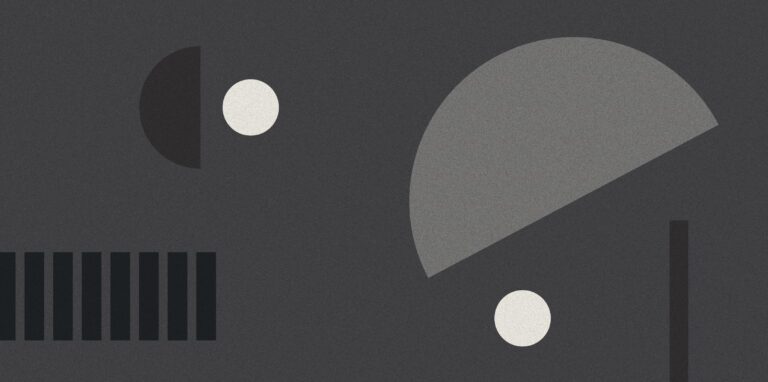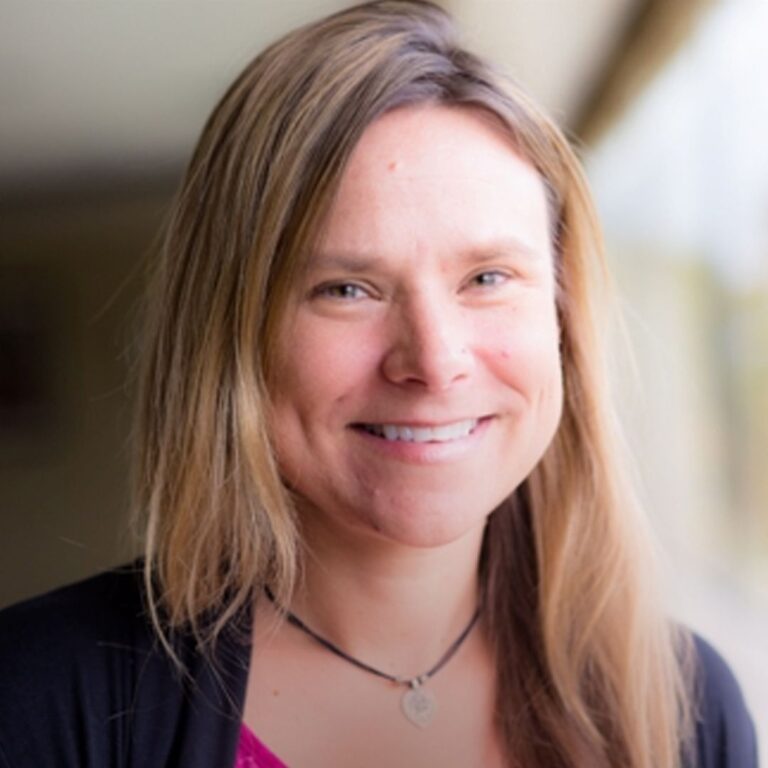“Yes, and ...” Thinking
With Ai-jen Poo
“We are dealing with so much bad news, horrible news. And there is also so much beauty happening in the world right now and so many people who have shown up. … We have been living in a time of such scarcity and austerity and zero-sum. This is not what we were meant for as human beings.”
| Question to LiveWhat is causing me to despair right now, and where am I finding hope? |
| Integration Step
What would you have to give up or soften in what feels habitual right now, to cultivate a “yes, and …” orientation? Ponder that. Practice what you discern. |
| Heart of the Matter
“We are dealing with so much bad news, horrible news. And there is also so much beauty happening in the world right now and so many people who have shown up. … We have been living in a time of such scarcity and austerity and zero-sum. This is not what we were meant for as human beings.” |

Transcript
Krista Tippett: Hello, again. Welcome to a new session of our hope course.
The great civil rights leader and elder, Vincent Harding, who I was so, so grateful to know before his death, used to speak of “live human signposts” — how bringing hope and bringing possibility in places of darkness and despair needed real human beings and real lives that demonstrated that possibility and that hope. And I see Ai-jen Poo, who’s our teacher for this session, as a live human signpost.
Like Ross Gay, she insists on joy. And she does that even though the field in which she works has been one of the fault lines of our world, one of the most painful and puzzling failures of our world. And I interviewed Ai-jen Poo in early 2020, before any of us could’ve imagined that the pandemic was coming. And she had been seeing what all the rest of us eventually saw is this world of caregiving, which is to say these multitudes of human beings who came out when others were suffering and put their own lives on the line to be there for them. And what she’s known is that this world of caregiving is among us all the time, and it has been largely invisible. And even as we have developed this culture of self-care, there’s been this glaring — I don’t want to just call it injustice — really a cruelty that is embedded in our society.
She started to see this invisible workforce of millions when she was a college student — millions of people, as she’ll say, laboring with dignity and laboring with love, everywhere behind the doors of private homes. And these are nannies and domestic workers and companions to the elderly. This animated her. She dug deeper. She learned how professional caregivers were actually excluded from every milestone in the 20th century — in the 20th-century United States — that guaranteed simple, life-sustaining rights, just simple rights like time off and overtime pay.
And in 2007, she co-founded the National Domestic Workers Alliance, which has become a force — has actually accomplished so much. And this story of how she and her colleagues, and also this world of caregivers and also a world of employers, took up this cause with, I would say, equal parts tenderness and muscle. And just before the 2020 pandemic, Ai-jen Poo said to me that we are standing at a once in several generations opportunity to transform and update how we care for one another in this country — not just how we value domestic workers, but how we value care.
I think, to Ross Gay’s insistence on joy and delight, Ai-jen Poo intriguingly adds a reverence for power — for a certain kind of power. And she embodies that generation of changemakers I mentioned before who are weaving accompaniment — weaving accompaniment, also in the form of friendship, in from beginning to end and so inventing a whole new world of transformational organizing.
When we picked up this part of the conversation you’re going to hear, I was just asking her about this new podcast that she had just launched with her friend Alicia Garza. So take a listen.
Ai-jen Poo: I will say I’m obsessed with power, [laughs] as most organizers are, because I believe in the Dr. King sense of it — the combination of love and power to transform our world. And so the podcast is called Sunstorm, and it’s based off of the weather pattern called a sunstorm, where you can have really torrential storm — rain, sometimes even hail, but somehow, miraculously, the sun is still shining. Do you know what I’m talking about, that dynamic? And my colleague and I who host the show, Alicia Garza, who’s a cofounder of Black Lives Matter, and I, we — after the 2016 election, it felt to us like a political sunstorm — that we were both dealing with unprecedented dangers and threats and unprecedented signs of hope, and that women in particular were the leading edge — that they were really the sun shining through, first responders in our crisis.
Tippett: Something else that I find defining of your generation is friendship and the power of friendship, and the power of friendship between women, but not just women. When you and Alicia introduce each other in the first episode — when you introduce her, you say, yes, she’s one of the cofounders of Black Lives Matter, but the first thing you say about her is she’s one of the best friends you could hope for.
I just did this interview with a scholar at Yale at the Human Nature Lab, called Nicholas Christakis, and one of the things he looks at is friendship as a force in human history and society. And you could say it’s a form of care, but it goes un-visible. We don’t ever pause to look at how it is actually changing the world and moving things forward. And it’s there in movements and in organizing.
Poo: It really is. I think having this podcast has made me a lot more aware of it, because when you talk to women, they talk about — and what enables them to shine through the storms is so much about friendship. It’s this unaccounted-for force for change that is so powerful.
Tippett: If I ask you just this week, right now in your life and your work, as you look around the world, what makes you despair, and where are you finding hope?
Poo: What makes me despair is when I think about how many cards are stacked against us, because for so long a huge amount of written and unwritten rules have disempowered domestic workers and so many other people. It’s quite profound. It’s cultural, it’s legal, it’s all these things — it’s programmatic. And what gives me hope is that I’ve actually seen, time and time again, through organizing and coming together and telling our stories and doing the work, we have made the impossible possible over and over again. And I know — I believe that we will win.
Tippett: You know, that statement about winning, in another voice, in another context, I would be skeptical. But sitting across from Ai-jen Poo, even after the glaring inconsistency between how much we say we value caregivers and how we actually treat them in the society — that’s more stark than ever, but I believe her, that she will win and that we will win.
You know, something she embodies is something I have experienced over and over again in the wisest — and then I would add, most pragmatically hopeful — people I’ve met and interviewed. And I would describe it this way. It’s — I could call it “both/and” thinking, but I’m going to call it “yes, and …” thinking. It sees the obstacles. It sees what is broken and forbidding and dangerous and unacceptable — and. And it wakes up the next day and says, “yes, and.” And you know, that’s embedded in her statement, even when she talked about Alicia Garza and she said they were both seeing that we are standing before unprecedented dangers and threats and unprecedented signs of hope. And so you see both, and you walk towards the hope — [laughs] using power pragmatically and using joy pragmatically, using friendship pragmatically.
You’ve heard me now, in the course of these sessions, a couple of times ask this question at the end of the conversation, which I don’t ask in all of my conversations, but sometimes it seems like the right question, and it felt like the right question here. You know, I’ll ask somebody, “Today, as we’re sitting here, what is making you despair, and what is bringing you hope?” And Ai-jen Poo also made a move that has so surprised me and been so fascinating, which is that very often the answers to the two parts of that question are more conjoined than oppositional. So she said, “What makes me despair is I think about how many cards are stacked against us. And what gives me hope is that through organizing and coming together and telling our stories and doing the work over and over again, we have made the impossible possible.”
The crucible of my hope is in this puzzle of us, this contradictoriness that is alive in each one of us and in this moment we inhabit. It calls to mind for me another feature of wisdom that I have experienced — that in life and society, wisdom emerges in those moments when we have to hold seemingly opposing realities in a creative tension and interplay: power and frailty, birth and death, pain and hope, brokenness and beauty, conviction and mystery, calm and fierceness, mine and yours.
So in Part 2 we are going to practice “yes, and …” thinking, “yes, and …” living.
And in Part 3 you can learn more about the generative narrative of our time that Ai-jen Poo sees and has made possible. You can hear more in granular ways, and it truly is stunning, how she’s made — she and her colleagues, because she would want us to credit them, too — how she and her colleagues and her friends have made the impossible possible over and over again.
I’ll see you next time.
